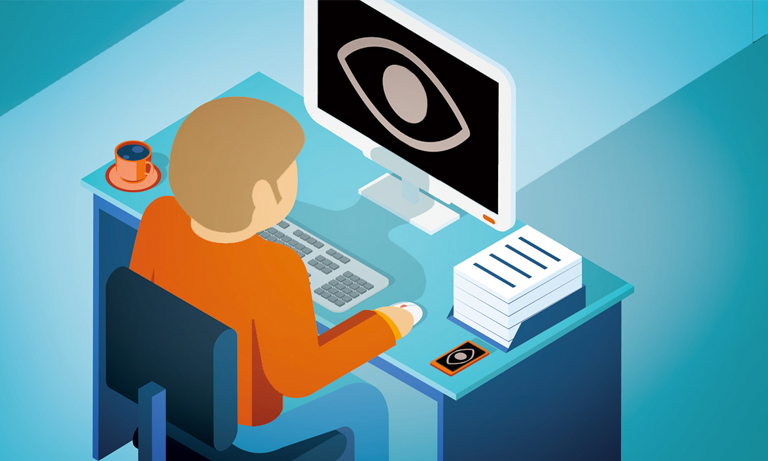 The technology to monitor IT usage is constantly advancing and is used by businesses to ensure that confidential information is not being disclosed and to maintain efficiency levels
The technology to monitor IT usage is constantly advancing and is used by businesses to ensure that confidential information is not being disclosed and to maintain efficiency levelsWith our personal and business lives becoming increasingly integrated thanks to the development of technology, it is essential that you understand how you can best protect your privacy whilst you are at work.
Technology is playing a more important part in our lives and we will typically use office computers for personal reasons alongside responding to emails or finishing work when we are at home; however, any searches or emails that you carry out at work could be viewed by an employer and you should therefore ensure you have taken the right steps to protect yourself.
Have separate devices
There is the expectation by employers that you will use corporate devices for a certain amount of personal reasons, provided this does not impact on your work or involve anything inappropriate. You should expect to have a degree of privacy when you are at work; however, if you want to completely protect your data, you need a separate device for personal use.
Are you being monitored?
The technology to monitor IT usage is constantly advancing and is used by businesses to ensure that confidential information is not being disclosed and to maintain efficiency levels. If your company is monitoring your IT use, this will be laid out in your official policies. Make sure that you check what, if any, systems are in place and ask if this is not clear.
Consider your social media profiles
The majority of people have social media accounts, but we do not always consider how these could impact our working lives until it is too late; for example, you might not want to complain about a colleague on Facebook, as these posts could still be shared with others even if your account is locked.
Have strong passwords
It is imperative to think about the passwords you use to prevent your accounts being hacked. Unique and complicated passwords, especially short sentences with spaces or those with special characters, are much more secure than your partner’s, child’s or pet’s name.
You should have different passwords across all your accounts to enhance security and there is no need to change them unless your account has been hacked or you suspect it has been hacked. Government guidelines highlight that changing passwords frequently can result in weaker choices; therefore, draw this to your company’s attention if it has set up regular changes.
Double protection
Two-factor authentication (2FA) gives you an additional layer of security across your accounts, meaning it is not just based on your password, and this is simple to set up.
Establishing online security takes more than just one quick step; however, putting in the time to implement these features could save you money and stress in the long run.
Join Over 40,000 Recruiters. Get our latest articles weekly, all FREE – SEND ME ARTICLES
Recruiters love this COMPLETE set of Accredited Recruitment & HR Training – View Training Brochure








